How to Check if Google is Indexing My Site? – 4 Easy Methods
by
7-layers of Security for Your WordPress Site
Your website needs the most comprehensive security to protect it from the constant attacks it faces everyday.

You just launched a shiny new site. You’ve put in hours crafting content and setting it all up. Now, you eagerly wait for it to appear in Google search results. But days go by, and there’s no sign of your site. It’s like throwing a party, and no one shows up. Frustrating, right?
So why isn’t your site appearing on Google? This can happen for several reasons. Sometimes, your site isn’t indexed, which means Google hasn’t stored it in its database for people to find.
Now, you might be asking, “How to check if Google is indexing my site?“
Getting your site indexed ensures visitors can actually find your content. You want your effort to pay off with clicks, views, and engagement. Understanding how to check if your site is indexed is the first step. It’s like checking a map to make sure you’re on the right path.
In this article, I’ll guide you through simple ways to see if your site is indexed. Together, we’ll ensure your site gets noticed.
TL;DR: To check if Google is indexing your site, use tools like Google Search Console and search engine operators. If your site isn’t indexed, fix issues like robots.txt blocks and submit your sitemap. Also, backup your WordPress site to keep your data safe.
1. Use site: search operator
There’s a simple trick to check if Google is indexing your site that you can use right away. It’s called the site: search operator. Think of it as a shortcut to see which pages of your site are stored in Google’s library.
Step 1 – Go to Google.com: Open your web browser and visit www.google.com. It’s just like starting any other web search but with a special focus.
Step 2 – Enter site:yourwebsite.com in the search bar: Type site: followed by your website’s URL in the search bar. For instance, if your site is www.cookingfun.com, you type site:cookingfun.com. You can also check specific pages by adding more details. A search like site:cookingfun.com/recipes zooms in on the recipes section.

Step 3 – Review the results: Hit enter and watch the results appear. This list shows which pages Google knows about and has indexed. If a page doesn’t show up in the list, it might not be indexed yet. Now you know which parts of your site need more attention.
2. Use the URL Inspection tool in Google Search Console
Google Search Console is a powerful tool for website owners. One of its features is the URL Inspection tool. It helps you see how Google views and indexes specific parts of your site. This tool gives you a deeper look into what’s happening with your pages.
Step 1 – Sign in to Google Search Console: First, head to the Google Search Console website. Log in using your Google account details. You should see a dashboard that gives you access to various tools.
Step 2 – Select your website property: If you manage more than one website, make sure you pick the right one. Your websites are listed on the top left of your dashboard. Click on the site you want to check, ensuring that you’re looking at the right data.
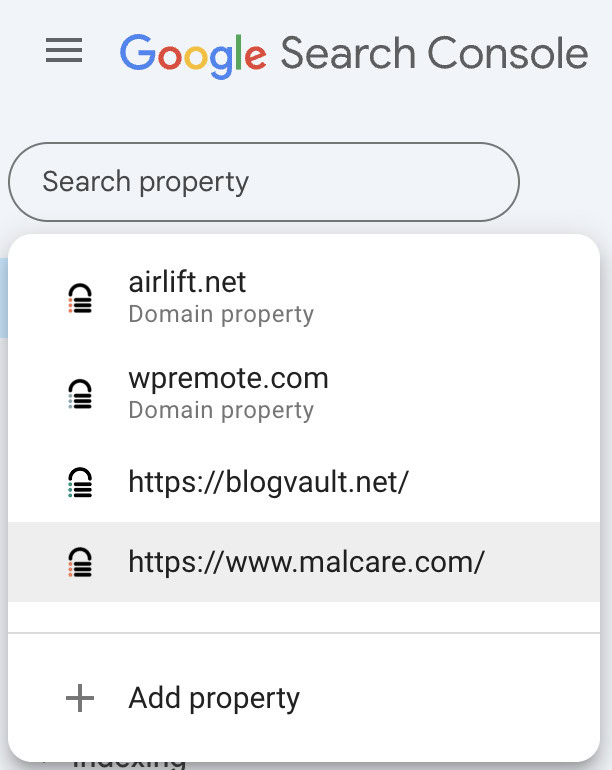
Step 3 – Access the URL Inspection Tool: On the left menu, find and click on URL Inspection. This tool is your gateway to detailed insights about specific URLs on your site.
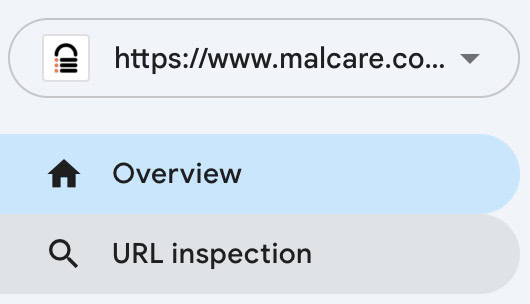
Step 4 – Enter the URL you want to check: Type or paste the full URL of the page you want to inspect into the search bar. This should be the exact address you want indexed, such as www.yoursite.com/blog/post.

Step 5 – Review the indexing information: Once you hit enter, the tool shows if the URL is indexed. It gives details on any problems and suggests fixes. This information helps you understand how Google interacts with your page and what you can improve for better visibility.

3. Check the Index Status Report on Google Search Console
For a deeper dive into your site’s indexing status, you can use the Index Status Report in Google Search Console. This tool offers detailed insights but may feel more technical. It’s a great resource if you’re comfortable with website terms and ready to explore your site’s backend.
Step 1 – Go to Index Status Report: In Google Search Console, navigate to Indexing on the left menu, then click on Pages. This section shows how many of your site’s pages are indexed by Google. It provides a snapshot of your site’s visibility.
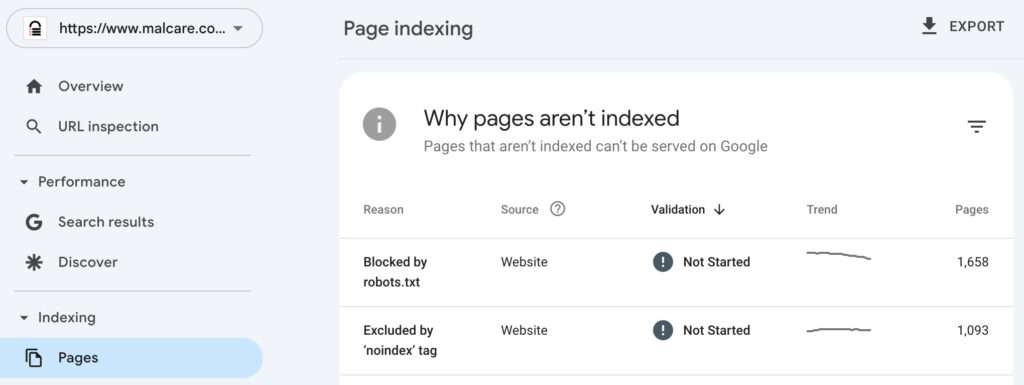
Step 2 – Review the list of reasons: This report also highlights why some pages aren’t indexed. Reasons can vary from technical errors to content issues. Understanding these reasons is key to resolving any barriers to indexing.
Step 3 – Fix issues and validate fixes: Once you’ve identified the problems, work on fixing them. After making corrections, return to the report and click Validate Fix. This tells Google you’ve made changes and want them rechecked. Google will then re-evaluate and hopefully index the corrected pages.
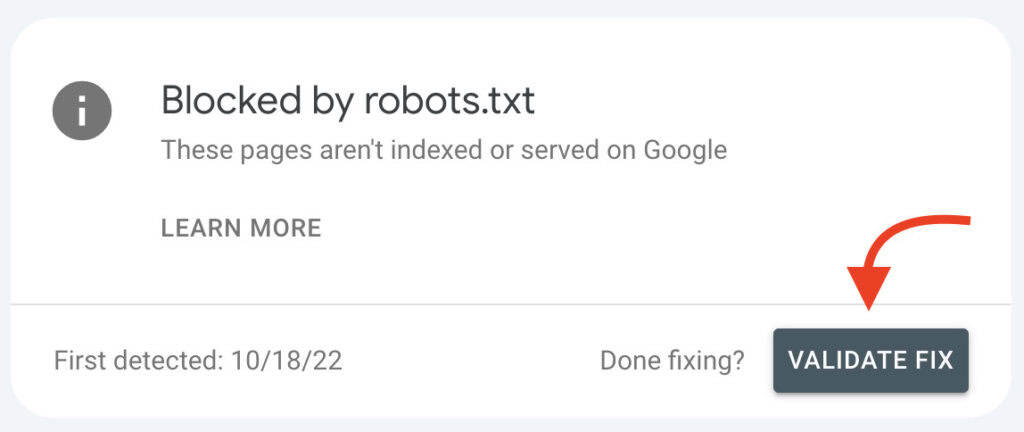
4. Use an indexed page checker tool
An indexed page checker tool can be a handy way to see if your site appears in search results. These tools offer quick insights and can be very helpful if you’re managing multiple pages or sites.
Step 1 – Explore available tools: There are several specialized tools for checking page indexing. Some popular choices include Semrush, SE Ranking, Ahrefs, and Moz. These platforms are known for their SEO capabilities and can provide detailed analysis.
Step 2 – Run a search for your site: Once you’ve chosen a tool, input your website address. The tool will scan to determine if your pages are indexed. This process is usually straightforward and user-friendly.

Step 3 – Analyze the results: The tool will display which of your pages are indexed. It might also highlight any existing issues. This information can guide you on what areas need attention to improve your site’s visibility. Using an indexed page checker provides a broader view of your site’s search performance and can complement your efforts with other tools.
What is indexing and why is it important?
In the context of WordPress and websites, indexing refers to how search engines like Google read and sort your content.
When a search engine indexes your site, it looks at what you’ve written, categorizes it, and stores it in its system. This helps people find your site when they search online.
Indexing is important because it:
Without indexing, your site might not show up in search results, which can limit your growth.
What to do if your site is not indexed?
If your site is not indexed, it means search engines are not listing it in search results. Here’s what you can do:
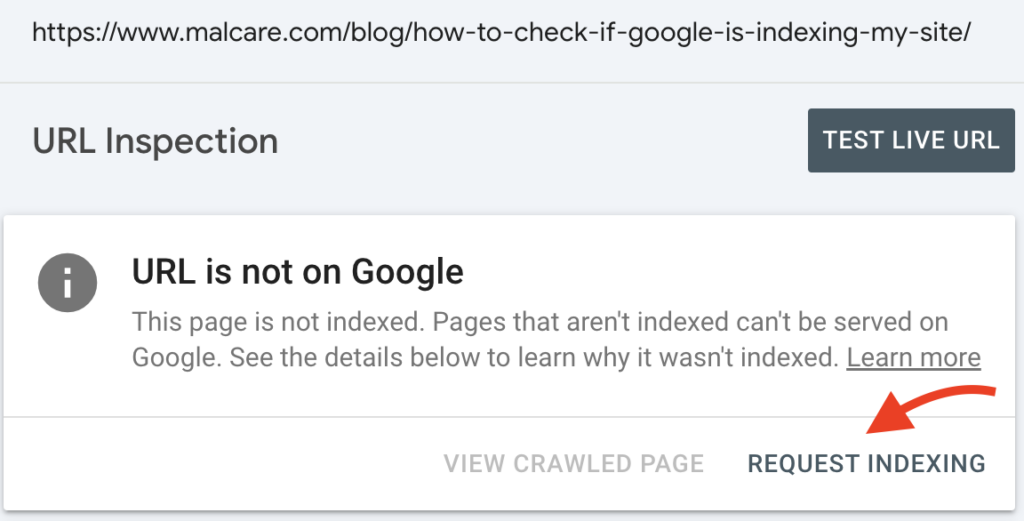
Why is your site not indexed?
There are several common reasons why a page might not be indexed by search engines:
Final thoughts
In the world of websites, getting indexed is crucial. It boosts your site’s visibility and brings traffic. If your site isn’t showing up in search results, it’s time to act. By checking if Google indexes your site, you ensure all your hard work pays off. Follow the steps we discussed to make sure your site is ready for the spotlight. Fix any issues you find, and soon your site can reach its audience.
As you focus on indexing, don’t forget about your site’s security and backups. MalCare can help with this. It offers reliable backup features to keep your data safe without slowing down your site. With its malware detection and one-click cleaning, your site stays protected from threats. It can also scan for vulnerabilities, providing peace of mind. MalCare ensures your site is secure and running smoothly.
FAQs
How to check if a site is indexed by Google?
To check if a site is indexed by Google, use the site: search operator. Go to Google.com and type site:yourwebsite.com in the search bar. This shows you a list of pages from your site that Google has indexed. If you don’t see your pages, they might not be indexed. You can also use Google Search Console’s URL Inspection Tool to check specific page indexing.
How do I make sure my website is indexed?
To ensure your website is indexed, start by submitting your site to Google Search Console. This helps Google know it exists. Submit an XML sitemap through Search Console to guide Google’s crawlers. Make sure your site’s robots.txt file doesn’t block search engines. Check for any indexing errors and fix them promptly. Once everything is set up, request indexing for any new or updated pages. This process helps your site appear in search results.
Will Google automatically index my site?
Yes, Google can automatically index your site, but it doesn’t always happen right away. Google’s bots periodically crawl the web to find new content to index. But, it’s not guaranteed that they will discover your site quickly. To speed up the process, you can submit your site and its sitemap to Google Search Console. This helps Google find and index your site faster.
Category:
Share it:
You may also like

WordPress Nonce – All You Need To Know About It
Ever clicked a link on a site and gotten a confusing error message instead of the page you expected? Maybe you were trying to submit a form or delete a…

2 Simple Fixes For index.php File Corrupted on WordPress Site?
Dealing with broken links and jumbled pages is not fun, and it’s definitely not what you want your visitors to see. A corrupted index.php file is a common reason for…

The Pros and Cons of WordPress Multisite
Managing multiple websites can feel like juggling too many balls at once. Imagine you run a bakery chain, and each store needs its own website. Or, you’re a school administrator…
How can we help you?
If you’re worried that your website has been hacked, MalCare can help you quickly fix the issue and secure your site to prevent future hacks.

My site is hacked – Help me clean it
Clean your site with MalCare’s AntiVirus solution within minutes. It will remove all malware from your complete site. Guaranteed.

Secure my WordPress Site from hackers
MalCare’s 7-Layer Security Offers Complete Protection for Your Website. 300,000+ Websites Trust MalCare for Total Defence from Attacks.








